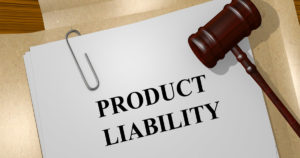FDA Takes Zantac Off The Market
April 15, 2020 If you or someone you know is taking Zantac, stop. The Food and Drug Administration (FDA) recently issued an order requesting that manufacturers pull Zantac and all other products containing certain levels of ranitidine from the market. The request was made in light of months of independent testing, which showed that the popular antihistamine and antacid can break down into the known carcinogen n-nitrosodimethylamine, or NDMA.
If you or someone you know is taking Zantac, stop. The Food and Drug Administration (FDA) recently issued an order requesting that manufacturers pull Zantac and all other products containing certain levels of ranitidine from the market. The request was made in light of months of independent testing, which showed that the popular antihistamine and antacid can break down into the known carcinogen n-nitrosodimethylamine, or NDMA.
The FDA oversees the safety and efficacy of medications in order to keep Americans healthy and to limit their exposure to dangerous contaminants and additives. As part of the FDA’s immediate market withdrawal request of Zantac, the agency says that no ranitidine products will be available for new or existing prescriptions or over-the-counter (OTC) use in the country. Although the order might seem sudden to some, the agency has been unsure about how safe ranitidine is for quite some time. In fact, the FDA has been monitoring ongoing investigations surrounding ranitidine for years.
What Is NDMA And Why Is It Dangerous?
Ranitidine’s brand name is Zantac, a drug popular for treating and preventing heartburn. Zantac works by reducing the amount of acid the stomach produces, and is also sometimes used to treat and prevent stomach and intestinal ulcers.
Ranitidine can break down into n-nitrosodimethylamine, or NDMA, which is an organic compound known for being highly hepatotoxic. Hepatotoxic substances are destructive or dangerous to liver cells. NDMA is also classified as a known carcinogen, or cancer causing substance, in lab animals and as a “probable carcinogen” in humans. Because NDMA is both hepatotoxic and carcinogenic, the FDA established a maximum dose of the compound that is permissible per tablet for medication manufacturers to follow. But as ongoing third-party investigations continued, data showed that the impurity (e.g. NDMA contamination) of ranitidine products increases over time, and that medications also become more contaminated when stored above room temperature.
According to the World Health Organization (WHO), exposure to high rates of NDMA is thought to cause colorectal or gastric cancer. Colorectal cancer is sometimes accompanied by symptoms like changes in bowel habits and stool consistency, blood in the stool, and abdominal discomfort. Gastric cancers can cause symptoms such as:
- Feeling bloated after eating or feeling full after eating small amounts of food,
- Heartburn,
- Indigestion, and:
- Nausea
If you are experiencing these symptoms and took Zantac or another medication with ranitidine for a sustained period of time, it is advisable to seek the advice of a medical professional.
The FDA’s Order And Advice To Consumers Who Take Zantac
The FDA is sending letters to all ranitidine manufacturers and requesting they withdraw their products from the national market in order to protect consumers from these risks. The agency is also advising consumers who are taking over-the-counter ranitidine to stop taking any liquids or tablets they currently have and to avoid taking any more. Patients who take prescription ranitidine or Zantac should speak with their healthcare provider before discontinuing use in order to determine what other treatment options they have. There are many medications approved for the same or similar uses as Zantac that do not come along with the NDMA-related hazards.
Zantac, Zantac 75 and Zantac Extra Strength are not the only ranitidine-based products the FDA is pulling from the market. Wal-Zan 150 and Wal-Zan 75, both manufactured by Walgreens, are also included in the agency’s large-scale recall. To make sure that you and your loved ones are not continuing to take any recalled medications, you can view the FDA’s press release on its order for withdrawal here.
If you were diagnosed with colorectal or gastric cancer or are experiencing liver problems after taking Zantac or another ranitidine-based medication, someone at our firm can help. Please contact a representative online.
Philadelphia Products Liability Lawyers at Galfand Berger, LLP Representing Injured Individuals Since 1947
With offices located in Philadelphia, Bethlehem, Lancaster, and Reading, Galfand Berger serves clients throughout Pennsylvania and New Jersey. To schedule a consultation, call us at 800-222-8792 or complete our online contact form.
 Google Screened
Google Screened
